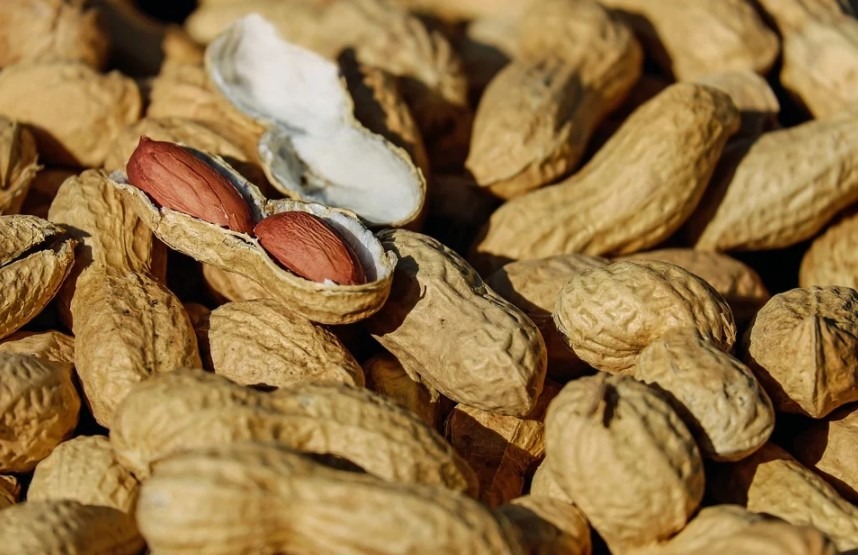A Harvard study found that people who ate a handful of nuts every day lived longer, healthier lives than those who did not eat nuts.
Most people think that peanuts belong to the nut family, but in actual it belongs to the legume family. Since peanuts are grown underground, they are considered as ground-nuts. Across the globe, peanuts are consumed as a popular snack. Delicious taste and enormous health benefits make them loved by everyone.
Peanuts are rich in carbs, fat, fiber, protein, magnesium, and other vital minerals and vitamins. Over time, because of the high-fat content, peanuts have gained a bad reputation. And people are concerned if they are bad for heart health or not.
The Controversies Related To Peanuts
Many controversies revolve around peanuts. Some say that due to high calories, peanuts are linked to being unhealthy for the heart. On the other hand, others say that due to high-fat content, they increase the weight and bad cholesterol level in the blood.
However, it is not advised to the heart patients to eat peanuts, since these nuts are comprised of almost 45-50% of monounsaturated and polyunsaturated fat.
The Reality
Even though peanuts contain plenty of high-quality monounsaturated fats, they are entirely free from trans-fat. Monounsaturated fats are associated with reducing High-Density Lipoprotein (LDL) and bad cholesterol as well. LDL or bad cholesterol is detrimental to heart health. Furthermore, trans fats are harmful to the whole system.
People with high cholesterol levels are recommended to consume peanuts. A handful of peanuts, other than primary healthy fats, fiber, and protein, can fulfill your daily requirement of thiamine, magnesium, biotin, vitamin E, phosphorus, copper, manganese, and folate.
Many people do not add peanuts to their diet with the fear of increasing body mass. But the reality is the opposite. Peanuts are exceptionally healthy, and if eaten in the right quantity can boost weight loss.
The presence of high-quality carbohydrates, protein, and fat in peanuts, keep you full for a long time and make you avoid unnecessary food craving. However, don’t forget to consume them in a limited amount. The skin of the peanut is rich in resveratrol and antioxidants – both of them are extraordinarily healthy for your heart. Therefore, do not throw the peanut skin next time while eating.
Antioxidants lower the chances of oxidative stress and reduce the risk of cardiovascular diseases by fighting with free radicals. Furthermore,resveratrol is a compound that is found in red wine. It is known to have a positive result on the blood fats and reduce the high blood pressure.
Peanuts Nutritional Value and Heart Health
A 1oz. serving of peanuts, which is a small handful, or about 40 peanuts (or 2tbsppeanut butter) contain:
- 161 calories.
- 7 grams of protein.
- Over 30 essential vitamins and nutrients.
- 12 of the 14 g total fat in peanuts come from heart-healthy unsaturated fatty acids.s
- 5 grams of dietary fiber, or 10% of your daily value for fiber.
Other than being loaded with proteins, these nuts contain some of the following mentioned heart-healthy substances.
- Fiber
Almost all nuts contain fiber, which helps in reducing cholesterol. It also gives you a feeling of fullness, which prevents overeating. Moreover, fibers are thought to avert type 2 diabetes.
- L-Arginine
Nuts also contain L-arginine, which makes artery walls more flexible and less prone to blood clots. In short, it helps to enhance the overall health of the artery wall.
- Omega-3 Fatty Acids
It is a known fact that fish contains omega-3 fatty acids, but several nuts also a rich source of omega-3 fatty acids. Omega-3, healthy fatty acids, help your heart by preventing irregular heart rhythms (which can lead to heart attack).
- Plant Sterols
Few nuts contain plant sterols, which is a substance that helps in reducing cholesterol levels. They are also added to products like orange juice and margarine for extra health benefits.
- Unsaturated Fats
Good fats in nuts (both mono and polyunsaturated fats) reduce the bad cholesterol levels. The reason is still not entirely explicit, and more research isrequired.
- Vitamin E
Vitamin E may help in blocking the development of plaques in arteries (which can narrow them). The plaque development can result in coronary artery disease, chest pain, or heart attack.
Bonus Tip: Pair peanuts in sauces with noodles and tofu for a satiating blend of carbohydrate, fat, protein, and fiber. Here’s a great Peanut Noodles with Tofu recipe from Sunset Magazine.
For more peanut recipes, check out the National Peanut Board’s Recipe page.
Final Words
Instead of believing in controversies and avoiding peanut, add them to your diet. Peanuts contain many nutrients that are beneficial for your heart health, and even the peanut skin is good for the heart. However, you should eat them in moderation or else it can result in unhealthy consequences.

